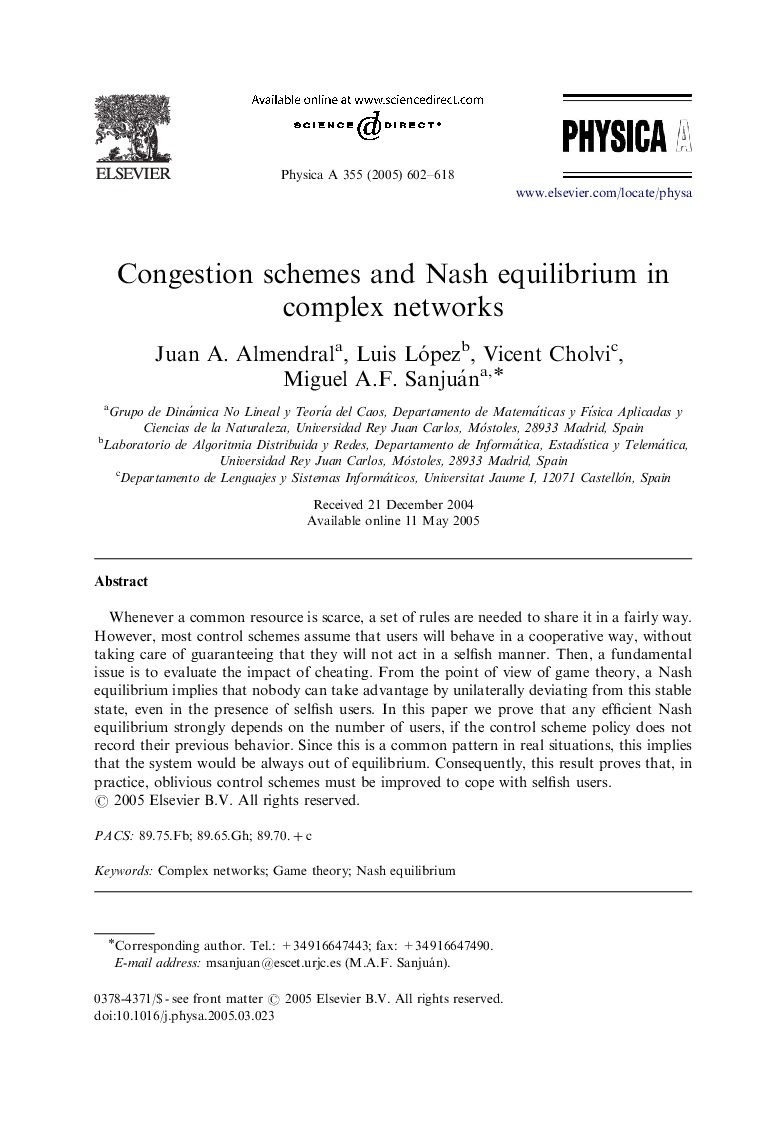| Article ID | Journal | Published Year | Pages | File Type |
|---|---|---|---|---|
| 9727605 | Physica A: Statistical Mechanics and its Applications | 2005 | 17 Pages |
Abstract
Whenever a common resource is scarce, a set of rules are needed to share it in a fairly way. However, most control schemes assume that users will behave in a cooperative way, without taking care of guaranteeing that they will not act in a selfish manner. Then, a fundamental issue is to evaluate the impact of cheating. From the point of view of game theory, a Nash equilibrium implies that nobody can take advantage by unilaterally deviating from this stable state, even in the presence of selfish users. In this paper we prove that any efficient Nash equilibrium strongly depends on the number of users, if the control scheme policy does not record their previous behavior. Since this is a common pattern in real situations, this implies that the system would be always out of equilibrium. Consequently, this result proves that, in practice, oblivious control schemes must be improved to cope with selfish users.
Related Topics
Physical Sciences and Engineering
Mathematics
Mathematical Physics
Authors
Juan A. Almendral, Luis López, Vicent Cholvi, Miguel A.F. Sanjuán,
